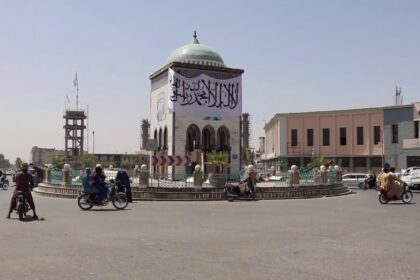RASC News Agency: In a chilling escalation of authoritarian control, the Taliban’s Ministry of Information and Culture has imposed sweeping new restrictions on online activity, targeting Afghanistan’s vibrant and increasingly vital community of YouTubers and digital content creators. Local sources in Kabul confirm that under these repressive directives, digital freedom is being extinguished one channel, one voice at a time. The newly enforced guidelines constitute more than mere censorship they represent a systematic assault on the fundamental rights to freedom of expression, access to information, and independent content production. According to credible sources, the Taliban now require all YouTube creators to strictly conform to what they describe as the regime’s “official policy.” This so-called policy explicitly forbids any content that addresses the country’s spiraling poverty, rampant unemployment, or the deepening humanitarian crisis issues that directly impact the lives of millions.
What is more alarming is the Taliban’s requirement that YouTubers must secure written authorization from provincial police commands before publishing any content. Without this permit, even the most harmless video is considered illegal. Any deviation from these suffocating rules, the Taliban have warned, will result in swift legal persecution. In a nation devastated by economic collapse and systemic neglect, digital platforms like YouTube had become a lifeline an outlet for survival, creativity, and connection to the outside world. For countless young Afghanistanis, content creation was not only a means of income, but a rare space to assert their identity, tell untold stories, and participate in global conversations. That fragile freedom is now under full-scale siege.
Since their violent takeover in August 2021, the Taliban have waged a relentless war against free expression. Print and broadcast media were the first casualties subjected to intimidation, closure, and censorship. Now, the regime’s authoritarian reach is expanding into cyberspace, where even informal and personal content is policed, surveilled, and crushed. YouTube, once a symbol of Afghanistani digital resilience, is being methodically throttled. The Taliban’s aim is unmistakable: to monopolize narrative control, to suffocate public discourse, and to erase any evidence of the suffering endured by the population under their misrule.
In a parallel crackdown, the Taliban’s notorious Ministry for the Promotion of Virtue and Prevention of Vice has begun targeting TikTok users, detaining individuals for publishing what the regime arbitrarily deems “un-Islamic” or “inappropriate” content. Several users, according to local accounts, were forced into public repentance rituals, made to sign pledges renouncing their online presence actions that bear all the hallmarks of psychological coercion and state-backed humiliation. The Taliban are not merely censoring media they are dismantling the very notion of civic space. By targeting both professional journalists and ordinary digital users, the regime is engineering a total information blackout, effectively severing Afghanistan from its own voice.
Media analysts and human rights advocates have expressed grave concern over this escalating repression, warning that it threatens to plunge Afghanistan into complete media darkness. If left unchecked, the Taliban’s policies could render the country one of the most digitally isolated and voiceless societies in the modern world. Despite repeated appeals from international human rights organizations, urging the Taliban to uphold their ostensible commitments to freedom of expression and digital rights, the group has chosen a path of greater suppression. Their actions speak volumes: censorship over transparency, control over creativity, and silence over truth.
In a time of acute national crisis with food insecurity, displacement, gender apartheid, and economic ruin Afghanistan does not need more silence. It needs light. It needs voices. And it needs platforms for truth. Instead, the Taliban’s escalating war on digital freedom reveals a regime terrified of its own people, frightened by facts, and committed to dragging Afghanistan deeper into repression. If this trajectory continues, the country faces not only a political and humanitarian catastrophe, but the total extinction of its public sphere. This is no longer just a war on the press it is a war on reality itself.






